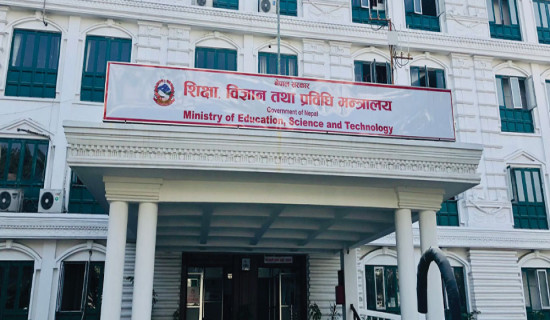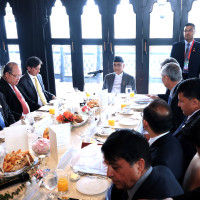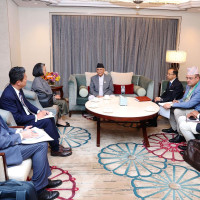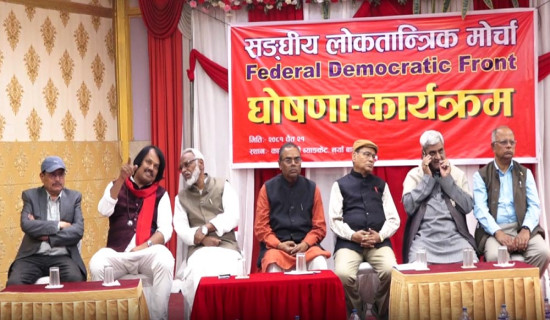- Friday, 4 April 2025
Lack of hospital buildings hampers services
By Basudev Sharma,Jajarkot, Apr. 3: People in rural villages in the district continue to face difficulties in accessing healthcare despite the government's initiative to establish 10-bed hospitals in each rural municipality and 15-bed hospitals in each urban municipality.
The problem persists due to negligence on the part of the construction contractors, who were assigned the task of building hospital facilities. They have failed to complete the building construction even five years after they were awarded the construction contract.
Among the seven local units in Jajarkot district, only Shivalaya Rural Municipality has successfully constructed a modern hospital building.
In contrast, the hospital building under construction in Nalagad Municipality has remained incomplete for nearly a decade, prompting health workers to provide medical services from tents. Similarly, Junichaande and Kushe rural municipalities have not yet begun construction.
Meanwhile, Bheri Municipality has initiated the construction of a hospital building in Poonma, Ward No. 7, in the current fiscal year. In Chhedagad Municipality, Ward 11, a multi-million-rupee hospital project in Jhapra is facing significant setbacks due to poor planning—construction began on a flood-prone paddy field without a proper environmental impact assessment or a detailed project report (DPR). As a result, government funds are being wasted.
Over Rs. 40 million has been allocated for landslide prevention measures without a technical estimate, and the hospital pillars laid five years ago were washed away by landslides. Despite reconstructing the hospital at the same site, technical challenges persist. The severe cold in winter and the constant risk of landslides during monsoon seasons have left patients reluctant to seek treatment.
Due to the region’s difficult geography and lack of transportation facilities, villagers must carry patients in bamboo baskets or stretchers to reach healthcare facilities. If they cannot access basic treatment locally, they are forced to travel to Jajarkot Hospital, Chaurjahari Hospital in Rukum West, Surkhet, or even Nepalgunj.
Tulsara Basnet, a resident of Ward No. 2, Shivalaya Rural Municipality, highlighted the dire consequences of inadequate healthcare access, stating that both minor and critical patients must travel to Surkhet or Nepalgunj for treatment. Pregnant women in rural villages are particularly vulnerable, often risking their lives due to the unavailability of medical services.
Laxmi Rokaya, a resident of Ward No. 5, Kushe Rural Municipality, expressed concerns over government inefficiency.
Although the government aims to provide healthcare services, negligence on the part of local authorities and stakeholders has resulted in hardships for pregnant women, postpartum mothers, elderly citizens, and individuals with chronic illnesses. The lack of medical check-ups for pregnant women has increased maternal health risks.
Furthermore, healthcare centres in villages lack essential services such as video X-rays and laboratory facilities. Despite the government’s provision of 98 types of free medicines, residents are struggling to access them.
Although many villages are now connected to road networks, the lack of regular transportation services forces residents to travel at high costs. The difficult terrain and the absence of accessible healthcare facilities continue to burden rural populations. The government's failure to enforce the right to healthcare, along with the negligence of concerned authorities, has left people feeling disheartened.







-square-thumb.jpg)





-original-thumb.jpg)



